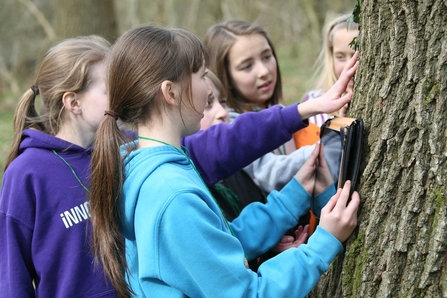Today we’re celebrating as a new school subject is announced – a natural history GCSE – one which will enrich our lives and help us tackle the biggest issue of the day: the nature and climate crisis. The worsening of these interlinked emergencies is entirely avoidable – and education has a major role to play in this.
Earlier this month, in response to the Independent Panel on Climate Change 'Mitigation of Climate Change' report, Secretary General of the United Nations, Antonio Guterres, said that “we are on a fast track to climate disaster; with extinction of a million species and warming of double the 1.5C goal.” The science is clear: we have to do things differently – and fast.
To do this, we must shape new leaders who understand that thriving eco-systems are central to our prosperity and the survival of the planet. But how do we foster a new generation of decision makers that will pioneer a better future?
A GCSE in natural history with a focus on protecting the planet is undeniably a great start. A qualification that gets under the skin of the natural world, that engenders a deeper understanding and love for the natural world, is desperately needed.
For the first time, more pupils that ever before will have the opportunity to develop an in-depth knowledge of, and real-life experience of animals, plants, trees, insects, fungi. Gaining vital and transferable skills in observation, identification, classification and data gathering, the GCSE will teach pupils to apply this knowledge to real world solutions – to restore natural systems, adapt to climate change and re-wild our towns, cities and the countryside.
This is a qualification that complements existing subjects like geography but takes young minds further and deeper into the connections between humans, the evolution of the natural world and its critical role in regulating the planet. Pupils will develop a deeper understanding of the inter-connectedness of the natural world.
There are other huge gains too. Vast amounts of research shows that time spent learning in nature will give pupils a healthy habit that can last a lifetime.


